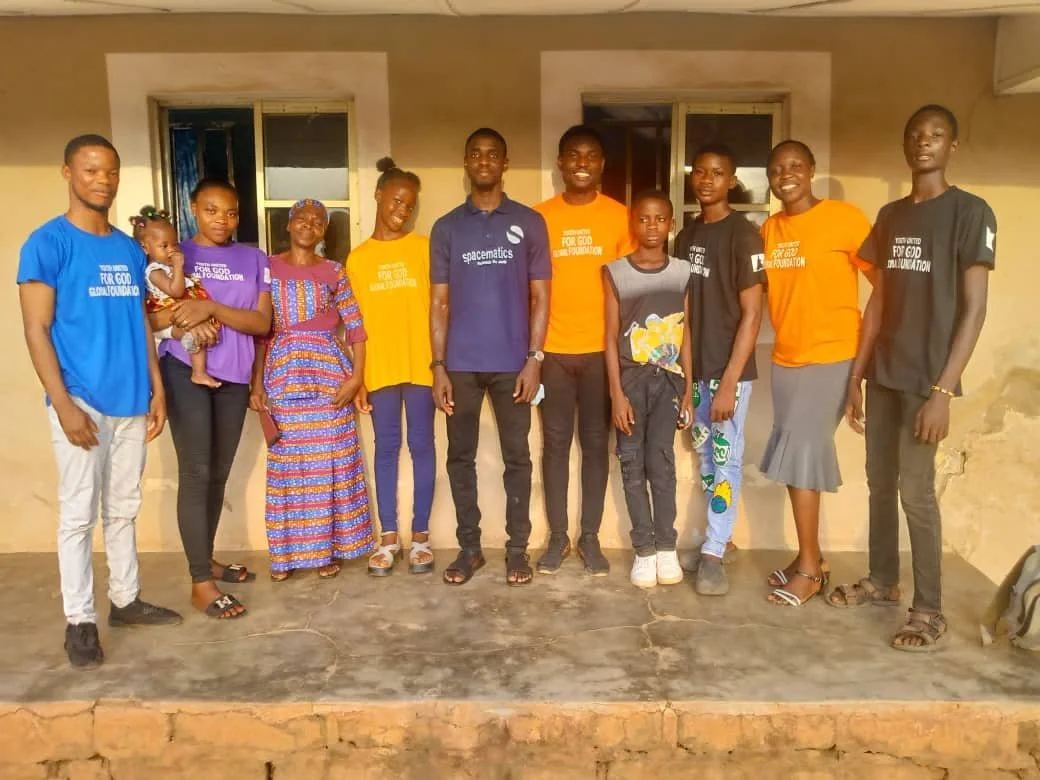BibleDojo, an interactive online platform, merges faith and technology in an effort to increase biblical literacy and fluency among Christians. Launched this past January, the program features click-through, dojo-themed lessons that aim to strengthen Christians’ reading skills for different genres of the Bible.
Read More(OPINION) If just 5% — or 6%, or 7% — of Americans feel committed enough to darken the doors of their churches for even an hour a week, then we no longer need to worry about becoming a post-religion culture. We’re there. Secularization has won.
Read MoreArtificial intelligence could organize worship music sets, plan church budgets and perform administrative tasks as well as or better than humans, half or more of Christians said in new research from Barna Group and Gloo.
Read MoreReligious leaders from across the world meet in Hiroshima, Japan, to sign the “Rome Call for AI Ethics” — emphasizing the vital importance of guiding the development of artificial intelligence with ethical principles that promote peace.
Read More(ANALYSIS) The more we rely on AI, the more we find ourselves yearning for something it cannot provide: authenticity, meaning and opportunities to connect on a fundamentally human level. This is where the church reenters the scene, not as a relic of the past, but as a symbol of the present, a sanctuary of authenticity. At this tipping point of artificiality and superficiality, people start craving transcendent values that algorithms cannot encode.
Read MoreIt appears that Emily Harrison — creator of the “Dear Christian Parent” website — is some kind of religious countercultural radical. By the way, for me “radical” is a compliment when discussing matters of digital-screen culture. The question is what brand of faith-based radical she is, since her Substack’s “about” page offers classic nondenominational-era language: “Believer in Jesus. Wife. Mother. Writer & Speaker on kids and screen time. ScreenStrong Ambassador.”
Read More(REVIEW) The documentary “Gothix” tells the story of popular Twitch streamer Vanessa Rosa (known online as “Gothix”) who, having achieved her dream of being a full-time internet personality, loses it all when she states a controversial opinion that makes her the target of a concentrated harassment and boycott campaign by her friends and peers. “Gothix” is a timely documentary about the universality of cancel culture and how faith may hold the answer to navigating it.
Read More(OPINION) Working with the AI bot Claude is, in no particular order, amazing, frustrating, and hilarious. On the one hand, when “he” gets things right, the knowledge base is beyond staggering. (Yes, I know I’m dealing with an “it,” but Claude has so much personality that I’ll stay with “he”). I asked Claude some questions from my wife Nancy about types of soil, and Claude responded in massive accurate detail, as confirmed by Nancy, who is quite expert in landscaping related issues.
Read MoreAs the pandemic receded, churches discovered unexpected benefits to their newly adopted tech. Some even saw the forced change as an opportunity to reimagine church. They brainstormed how to enhance livestream service quality and deepen connections with congregants through online platforms. But others have cautioned against too much tech adoption.
Read MoreNigeria’s population is well over 200 million. The African country’s median age is 18, but 13.8% of its young men and women are without formal education, employment or any form of job training. This has made unemployment a compelling and dire issue requiring concerted efforts from both state and charities.
Read More(ANALYSIS) How do U.S. Army chaplains perceive the legitimacy of American drone strikes and why should we care? Though chaplains are entrusted by regulations to shape the moral use of force, scholars have not studied what accounts for their perceptions of legitimacy. Yet legitimacy is “potent” in shaping the durability of policy and strategy.
Read MoreThe speakers that took to the stage at MIT this past week addressed a series of issues surrounding AI, including how it impacts a number of areas such as communications, entertainment, healthcare, politics, climate change and the military. In fact, speakers talked about the numerous potential pitfalls in a world where AI is becoming more ubiquitous.
Read More(ANALYSIS) The church was once considered a resource for understanding how reality works. That’s less the case today. To return to being a resource for things like artificial intelligence, we’d have to learn what the Bible says about technology and sorcery.
Read MoreA majority don’t see a moral or spiritual benefit to AI, the American Bible Society said on May 9 in the latest release from its 2024 State of the Bible. Most, 68 percent, don’t believe AI could be used to enhance their spiritual practices and thus promote spiritual health, while 58 percent don’t believe the technology could aid in their moral reasoning.
Read MoreChristians are divided on how to address this growing issue. One camp sees this as a problem — something that needs to be solved by helping people get married. The other sees the problem as the privileging of marriage — and that it’s the church that needs to adapt to reflect such societal changes. Here’s what some books are saying about the issue.
Read MoreIndia’s increased use of Facial Recognition Technology has led to the arrest of those the government deemed “troublemakers” for their involvement in recent protests. It was not the first time video technology had been used to identify people taking part in such activity against the government. As a result, there’s the potential on the part of police to increasingly target religious minorities.
Read MoreAre faith projects such as “The Chosen” not considered for secular awards because of anti-Christian bias? While there is plenty of bias in Hollywood, the reason is a much more complicated one. Film critic Joseph Holmes delves into the issue in time for this Sunday’s Academy Awards ceremony.
Read MoreThe following is the result of the chat Religion Unplugged contributor Davor Dzalto had with ChatGPT on July 12, 2023, on the questions regarding Orthodoxy, anarchism and AI. The resulting Q&A is a fascinating journey into what artificial intelligence knows about faith, theology and religious practices.
Read MoreThis week in our Talking to Tech series, we conducted another interview with ChatGPT-4. This was the second in a three-part interview. The first two involve questions specifically relating to the three monotheistic faiths.
Read MoreThis week, the next step of our Talking to Tech series was a “conversation” with ChatGPT, one of today’s most popular AIs. This was the first in a multi-part series exploring the depth of ChatGPT’s knowledge of and skillset concerning religion and religious topics.
Read More



















